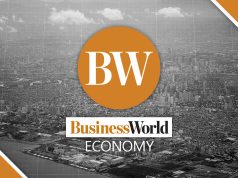Trade dep’t pursuing tie-ups in EV, energy-efficient ships

THE Department of Trade and Industry (DTI) said that it will be pursuing investment in electric vehicle (EV) technology and seek partnerships in building energy-efficient ships.
“Our country also plans to enter the global EV value chain. Climate change has compelled the shift to green products such as EVs,” Trade Secretary Alfredo E. Pascual said in his keynote speech at the 12th Arangkada Philippines Forum on Wednesday.
He said the Philippines will push for foreign EV technology transfer, noting the potential to leverage Philippines’ large reserves of key minerals like nickel, copper, and cobalt.
He said access to technology will unlock activities like “the assembly of pure EVs, plug-in hybrid EVs, hybrid EVs, and fuel cell EVs.”
The Philippines will also be in a position to manufacture EV parts and systems and develop the necessary support infrastructure like charging stations, Mr. Pascual said.
However, to ensure “minimal carbon footprint and more value-added economic activity” from expanded EV-related operations, the DTI will also seek investment in the processing of green metals.
“We (will) also invite investment in energy storage technology, including battery energy storage systems,” he said.
Mr. Pascual also said the DTI welcomes financing and partnership proposals for building energy-efficient ships.
The energy-efficient ship initiative is expected to lead to related ventures like the manufacture of maritime equipment, he said.
“Of course, we also have ambitious targets for renewable energy and reducing wasted heat and other forms of waste,” he added.
Mr. Pascual said the DTI will leverage free trade agreements and preferential tariffs to ensure such products will have broad market access.
“We have recently concluded the negotiations for our participation in the Indo-Pacific Economic Framework Agreement on Supply Chain Resilience,” he noted.
He said the agreement involving 14 countries will allow the mobilization of sustainable investment, showcase the Philippines as a reliable supplier of manufactured goods, and strengthen supply chains. — Justine Irish D. Tabile



